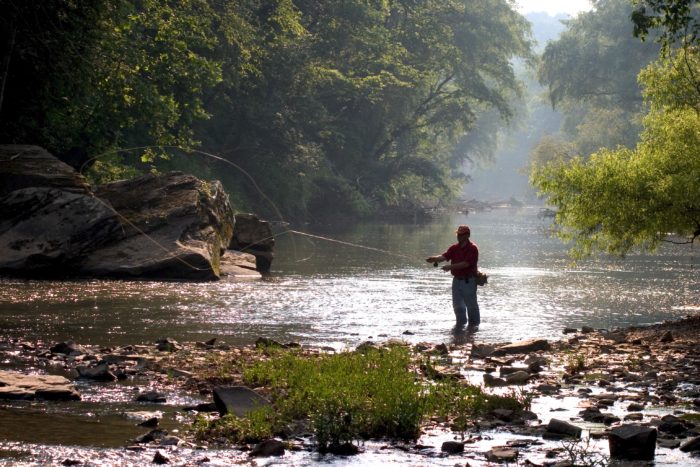Recent win protects Birmingham’s drinking water for decades
After years of negotiations, along with partners Cahaba River Society and Cahaba Riverkeeper, SELC recently reached an agreement with the Birmingham Water Works Board and Alabama Attorney General to legally protect 7,000 acres of forested land around Lake Purdy, the Little Cahaba River, and the Cahaba River from development that could impact drinking water.
“This is a legacy agreement that all parties should be proud of,” said Sarah Stokes, Senior Attorney for SELC. “This land will now be legally protected for generations to come.”
All parties agreed to use a consent decree which requires restrictive covenants to protect the land. On August 24, the court approved the consent decree. The restrictive covenants will be filed in Jefferson and Shelby County Probate Courts within 60 days.
We are relieved that after more than 20 years, the Birmingham Water Works Board has finally honored the commitment they made to legally protect this land.
David Butler, Cahaba Riverkeeper
The protected land is a natural buffer filtering stormwater runoff, providing clean drinking water for hundreds of thousands of people, and recharging metro Birmingham’s water supply while keeping treatment costs low for all water users.
After the Board and AG did not record conservation easements on the land required by a 2001 settlement agreement, SELC, on behalf of Cahaba Riverkeeper and Cahaba River Society, filed suit in 2021 to compel the Board to act. In 2022, the Alabama Supreme Court unanimously sided with the conservation groups and ruled that the Board failed to adequately protect the land according to the 2001 settlement agreement.

“We are relieved that after more than 20 years, the Birmingham Water Works Board has finally honored the commitment they made to legally protect this land,” said David Butler, Cahaba Riverkeeper and Staff Attorney. “We have fought hard to defend the right of ratepayers to clean, affordable drinking water, and will continue to do so moving forward.”
The restrictive covenants will “run with the land” for 75 years or until the Board stops using Lake Purdy and the Cahaba River as a water source. Even if the Board sells the land, it is still protected. Cahaba River Society and Cahaba Riverkeeper also have a legal right to enforce all protections on the land and perform regular inspections. Any changes to the settlement must be requested in court and approved by a judge.
The covenants prohibit urban development. Development necessary for providing water service, such as wells, pipelines, and roads to access them, are allowed. Public recreation uses that do not degrade the water source, such as trails, are also allowed.
“We now have a strong tool that engages the community with the Water Board in long-term protection of the land and drinking water source,” said Cahaba River Society Executive Director Beth Stewart. “We appreciate that the Birmingham Water Works Board and the Attorney General worked with us to find a solution that benefits all.”
